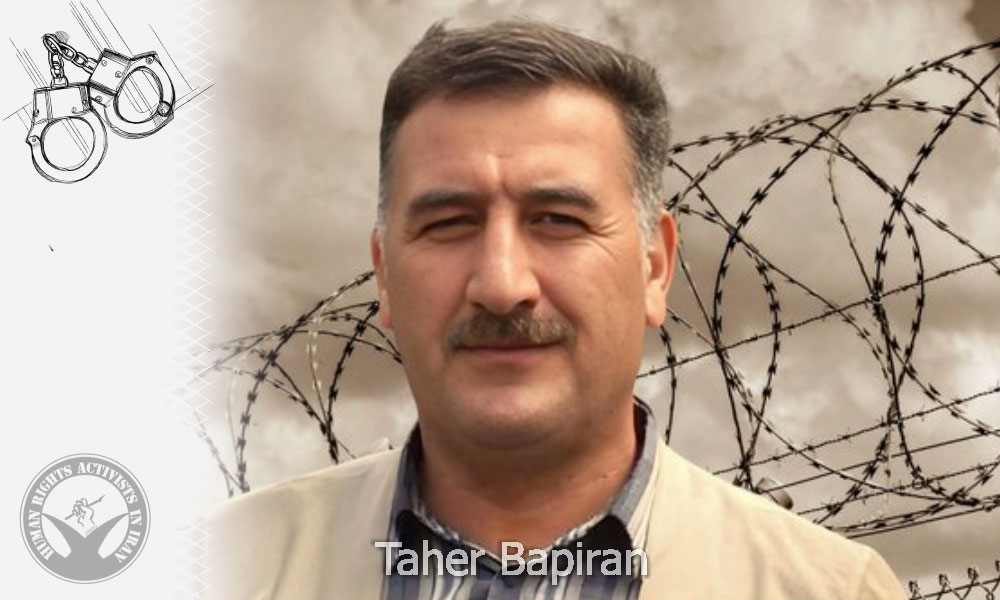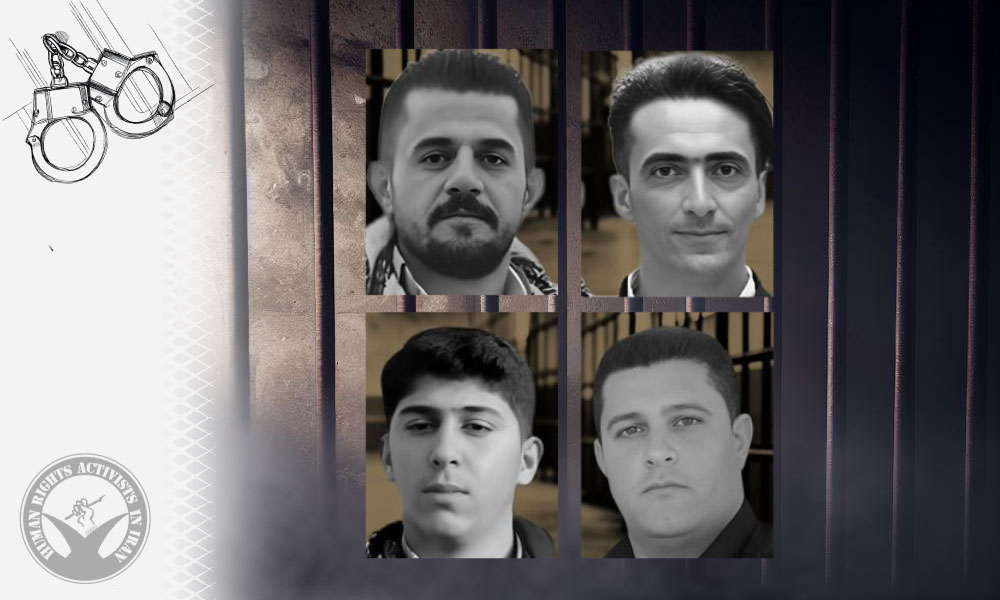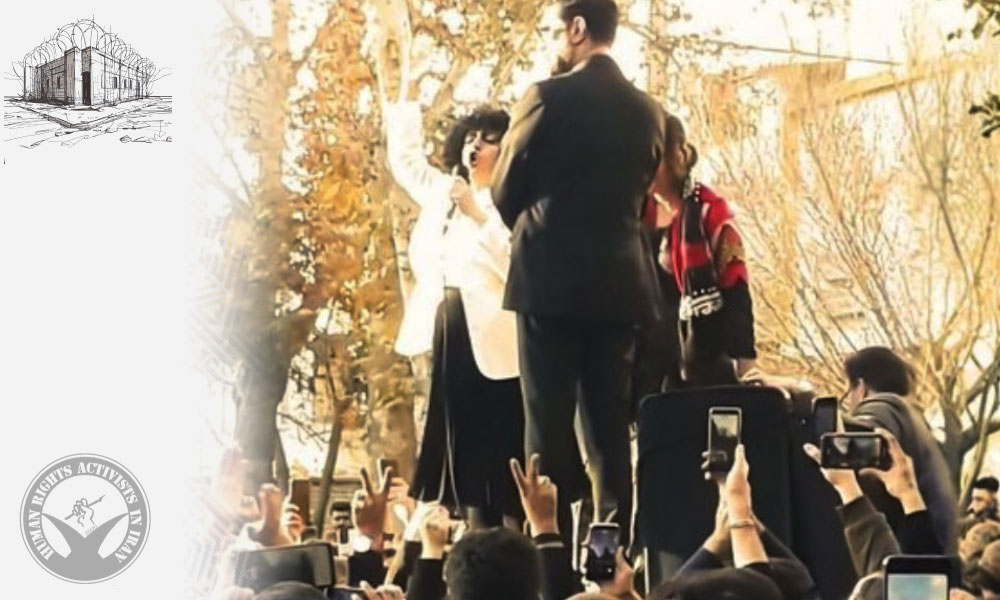HRANA News Agency – Following the mass transfer of political and security prisoners from Evin Prison to facilities such as Qarchak Varamin, the Greater Tehran Penitentiary, and Ghezel Hesar in Karaj, reports indicate that these relocations were conducted without regard for fundamental standards — including separation based on offense type, adequate living conditions, access to basic services, and the right to contact family members. These abrupt and forced transfers were made without transparent communication from the responsible authorities, sparking serious concern among the prisoners’ families.

In addition to causing infrastructural damage, the attack on Evin Prison has led to psychological distress and serious concerns for the families of prisoners. As of the time of this report, officials have not provided clear information about the status and conditions of the transferred prisoners.
Overcrowding
According to information obtained by HRANA, following the mass transfer of male political prisoners from Evin Prison, more than 70 individuals were relocated to Quarantine Unit 3 at Ghezel Hesar Prison in Karaj. These prisoners are enduring severe shortages of basic necessities and face tight restrictions on communicating with their families.
Female political prisoners who were abruptly and forcibly transferred to Qarchak Varamin Prison were initially confined in a cramped, unsanitary quarantine ward. They were later moved to a gymnasium lacking even the most basic facilities, including beds, and equipped with only a few restrooms. Eventually, they were returned to the quarantine ward, where they continue to be held in conditions that disregard crime-based classification and fail to meet minimum living standards.
At Greater Tehran Prison, inmates housed in Halls 3 and 4 of Ward 2 are being held in rooms that far exceed their intended capacity of 20 people. This extreme overcrowding has led to widespread floor-sleeping, heightened tensions among inmates, and a serious deterioration in sanitary conditions.
Poor Sanitation and Living Conditions
Sanitary conditions in Qarchak and Greater Tehran prisons have been reported as extremely poor. A family member of one of the women transferred to Qarchak told HRANA that in the prison’s gym and quarantine ward, there are only two toilets and one shower for dozens of inmates. The quarantine space is very small and unhygienic, and in the hot summer weather, access to outdoor areas is practically impossible. Reports speak of infestations of insects and pests such as mice, and even snakes in prisoners’ sleeping quarters.
According to HRANA, similar conditions exist in Greater Tehran Prison, where 70 to 80 inmates must share one toilet, one sink, and one shower. This lack of sanitary facilities significantly raises the risk of infectious and skin diseases, endangering prisoners’ health.
Limited Access to Food and Drinking Water
The food and clean water situation in Qarchak and Greater Tehran prisons is described as critical. In Qarchak, the tap water is salty and contaminated, making it undrinkable, and many prisoners must pay for bottled water. The prison has only one central kitchen that provides low-quality, insufficient food. Dinner is distributed at 4 p.m., and prisoners are forced to eat cold, tasteless meals at any later time. There is a fast food outlet in the prison, but prices are high and unaffordable for most inmates.
In Greater Tehran Penitentiary, the increase in prisoner numbers has seriously disrupted food distribution. According to a prisoner’s family, some inmates receive meals late or receive incomplete portions. Drinking water is also undrinkable due to its poor quality and high salinity, with no suitable alternatives available. Combined with the lack of hygiene facilities, this has created serious physical problems for prisoners.
Lack of Medical Services
Female prisoners in Qarchak and many of the inmates transferred to Greater Tehran Prison have been denied access to medical services. According to a relative of one prisoner, Qarchak provides no medical care or basic health facilities for women, who are held in security conditions without sanitary support. Greater Tehran Prison faces similar issues; for example, Morteza Seydi, who was injured during the Israeli airstrike, has been denied even the most basic treatment despite having a severe hand infection.
Restricted Contact with Families
Prisoners transferred to Qarchak and Ghezel Hesar are facing severe restrictions on contact with their families. At Qarchak, political prisoners held in the quarantine ward have been almost completely cut off from the outside world. According to a relative of one incarcerated woman, phone calls were still prohibited as of yesterday, with only a single malfunctioning phone available—enabling some prisoners to place short calls lasting just two to five minutes. Meanwhile, political and security detainees sent to Ghezel Hesar are being held under strict security conditions and have been entirely denied access to phone communication with their families.
On social media, relatives and friends of political prisoners transferred to Greater Tehran and Qarchak prisons have shared posts raising concerns about their conditions. Keyvan Mohtadi stated that his wife Anisha Asadollahi, along with Raheleh Rahemipour and Kobra Beiki, were transferred to Qarchak. He reported a lack of basic facilities, overcrowding, and that prisoners’ belongings were left behind in Evin. He emphasized that the situation is even harder for elderly inmates like Rahemipour and Beiki.
A social media page associated with Varisheh Moradi expressed concern about her health in Qarchak, stating that the transfer has disrupted access to medical care for ill prisoners.
Another page associated with Mostafa Mehraeen, who was arrested on June 15, reported that he was transferred to Greater Tehran Penitentiary but remains in solitary confinement and has so far had only one brief phone call with his family.
It is important to note that on Monday, June 23, amid Israeli airstrikes on Tehran, Evin Prison was directly hit. Multiple sections of the facility were damaged, including the main entrance gate, the on-site courthouse, the medical clinic, Ward 209, the bakery, and the visitation hall. The attack resulted in the death or injury of several conscripted soldiers, while dozens of prison staff and inmate laborers—some of whom were gardening at the time—were also reported wounded. In the aftermath, the Prisons Organization announced the transfer of Evin’s inmates to various detention facilities across Tehran Province.







